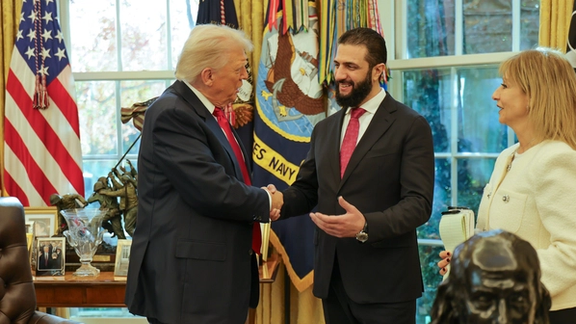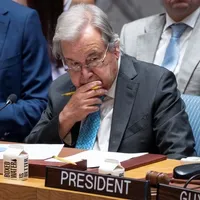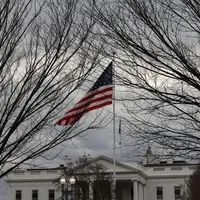The sanctions hit entities in Iran, China, Turkey, Germany, India, Ukraine, Hong Kong and the United Arab Emirates.
In a statement published on the treasury’s website, the Office of Foreign Assets Control (OFAC) said the targeted networks facilitated procurement of key materials and technology for Iran’s weapons programs and supported the Islamic Revolutionary Guard Corps (IRGC) and its overseas Quds Force.
"These networks pose a threat to U.S. and allied personnel in the Middle East and to commercial shipping in the Red Sea," OFAC said in a statement published on its website.
"As Iran seeks to reconstitute its proliferation-sensitive capabilities destroyed during following the 12‑Day War, OFAC is acting to disrupt the procurement of key components, such as missile propellant precursors, and to prevent those assisting Iran from accessing the U.S. financial system."
Sourcing from China
The Treasury described one of the key networks as the “MVM partnership,” a three-man venture accused of sourcing missile propellant chemicals—such as sodium perchlorate and sebacic acid—from China for Iran’s Defense Industries Organization.
Among those named were Marco Klinge, based in the UAE, Majid Dolatkhah in Iran and Turkey and Vahid Qayumi, who coordinated deliveries inside Iran. Several affiliated firms were also blacklisted.
The sanctions appear to target Iran’s imports of sodium perchlorate from China, after a CNN report in late October said shipments of the missile fuel ingredient had risen in recent weeks.
Ten to twelve shipments of the material began arriving in Iran from China on September 29, containing about 2,000 tons of sodium perchlorate that can be used to produce solid propellant for medium-range conventional missiles, the CNN report said citing European intelligence sources.
Another cluster of sanctions targeted Iran’s Kimia Part Sivan Company (KIPAS), linked to the IRGC’s drone development, and its subsidiaries involved in manufacturing UAV components and electronics.
Four Iranian employees, including Seyyed Ali Abtahi, were sanctioned for overseeing parts production and procurement.
Aircraft sensors
The Treasury also sanctioned a China-based financier, Ma Jie, and a dozen associated firms in Hong Kong and Turkey accused of helping Iran’s Mado company, which allegedly builds engines for Shahed-136 drones used by Russia in Ukraine.
A separate network connected to Iran’s Aircraft Manufacturing Industrial Company was accused of using shell firms in Ukraine to acquire aircraft sensors and navigation equipment.
Tuesday’s action marks the second major US sanctions round since the UN “snapback” of Iran restrictions in late September, which Washington says reinstated the pre-2015 embargo on Tehran’s missile and arms activity.
Treasury officials said the move underscores Washington’s effort to cut off Iran’s access to critical components “wherever they try to hide.”
“Across the globe, Iran exploits financial systems to launder funds, procure components for its nuclear and conventional weapons programs, and support its terrorist proxies,” said John K. Hurley, Treasury’s under secretary for terrorism and financial intelligence.
But new estimate by Washington-based advocacy group United Against a Nuclear Iran showed that Iran exported more than 2.2 million barrels per day (bpd) of oil in October, mostly to China.
The buoyant flows indicated the maximum pressure campaign Trump is imposing on Iran is falling far short of the results achieved in his first term, when exports sank to as low as about 200,000 bpd.


















